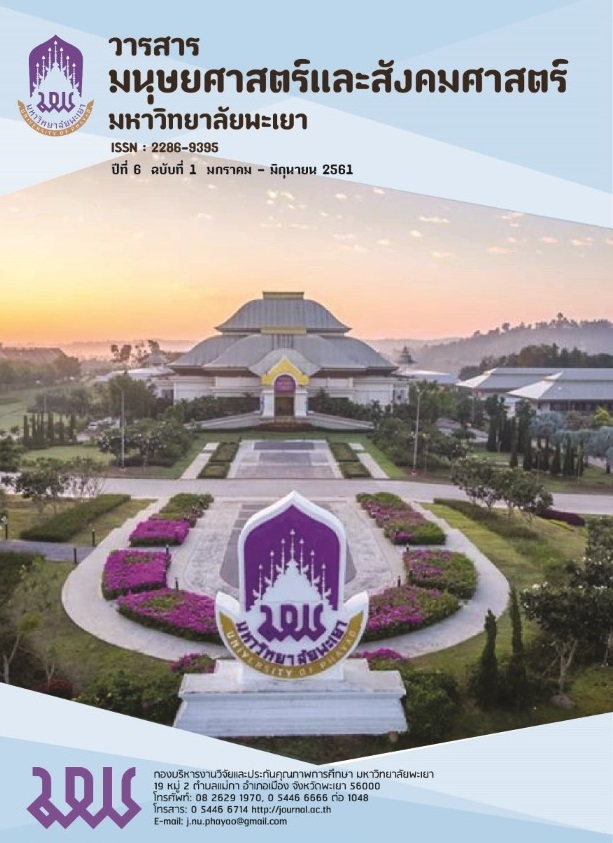Effect of virtual identities in online game social network interaction
Keywords:
Identity, Virtual identity, Social interaction, Online gameAbstract
Virtual Identity and Building Social Interaction on Online Gaming Network is a qualitative research that focuses on finding causal relationship to obtain comprehensive information and describe relationship of online gamers. The researcher conducted the target population survey in online social network by using the population and samples defining and in-depth interviewing methods with 20 sample interviewees who play the online game called Audition. Research findings were as follows: 1) pattern of virtual identity creation had various description, similar to expression of personal identity in reality, but such diversity did not have fixed pattern or compulsory criteria for creating characters or identity; 2) the fact was the online gamers could build their virtual or different identity because they were controlled by limitations in building identity in each game; 3) virtual identity in playing online games generated social interaction in online gaming network via each game's communication system and virtual identity triggered the beginning of relationship as players had to choose their conversational partner and determined if they would develop or cease their relationship with another online gamer; and 4) social interaction on online gaming network resulted in an assembly of sub-community of online gamers and had impact on lifestyle of online gamers. The impact was not in a negative way, but it brought about a kind of relationship called 'friendship' between gamers.
References
เทพพนม เมืองแมน และ สวิง สุวรรณ. (2540). พฤติกรรมขององค์การ. (พิมพ์ครั้งที่ 2 ฉบับปรับปรุงใหม่) กรุงเทพฯ: ไทยวัฒนาพานิช.
ธิดารัตน์ ไร่วิบูลย์. (2552). การสร้างอัตลักษณ์และกระบวนการสร้างความสัมพันธ์ผ่าน www.bloggang.com. วิทยานิพนธ์นิเทศศาสตรมหาบัณฑิต สาขาวิชานิเทศศาสตร์ สารสนเทศ บัณฑิตวิทยาลัย มหาวิทยาลัยธุรกิจบัณฑิตย์.
วัชรินทร์ ภิญโญศาสตร์. (2550). การสื่อสารเพื่อสร้างสัมพันธภาพและการสร้างตัวตน ในเกมออนไลน์ของวัยรุ่นไทย. วิทยานิพนธ์ปริญญามหาบัณฑิตจุฬาลงการณ์มหาวิทยาลัย.
Charon, Joel M. (2004). Symbolic Interactionism: an introduction, an interpretation, an intergration. 8 ed United State of America: Pearson Education
E.Mark Hanson. (2003). Education Administration and Organizational Behavior. 5th Ed. Boston: Pearson Education.
Guilford, J. S. (1970). Motivation and modern management. Reading. MA: Addison-Wesley
Kidd, J.R. (1973). How Adults Learn.Chicago: Association Press
Licklider, J.C.R. and Robert S. Taylor. (1968). The Computer as a Communications Device. In-Science and Technology no.76, 21-36.
Lussier, Robert N. (2005). Human Relations in Organizations: Applications and Skill Building.New York: McGraw-Hill Irwin, Inc.
Myron Krueger. (1991). Artificial Reality II. Reading, MA: Addison Wesle
Downloads
Published
How to Cite
Issue
Section
License
ผู้นิพนธ์ต้องรับผิดชอบข้อความในบทนิพนธ์ของตน มหาวิทยาลัยพะเยาไม่จำเป็นต้องเห็นด้วยกับบทความที่ตีพิมพ์เสมอไป ผู้สนใจสามารถคัดลอก และนำไปใช้ได้ แต่จะต้องขออนุมัติเจ้าของ และได้รับการอนุมัติเป็นลายลักษณ์อักษรก่อน พร้อมกับมีการอ้างอิงและกล่าวคำขอบคุณให้ถูกต้องด้วย
The authors are themselves responsible for their contents. Signed articles may not always reflect the opinion of University of Phayao. The articles can be reproduced and reprinted, provided that permission is given by the authors and acknowledgement must be given.








